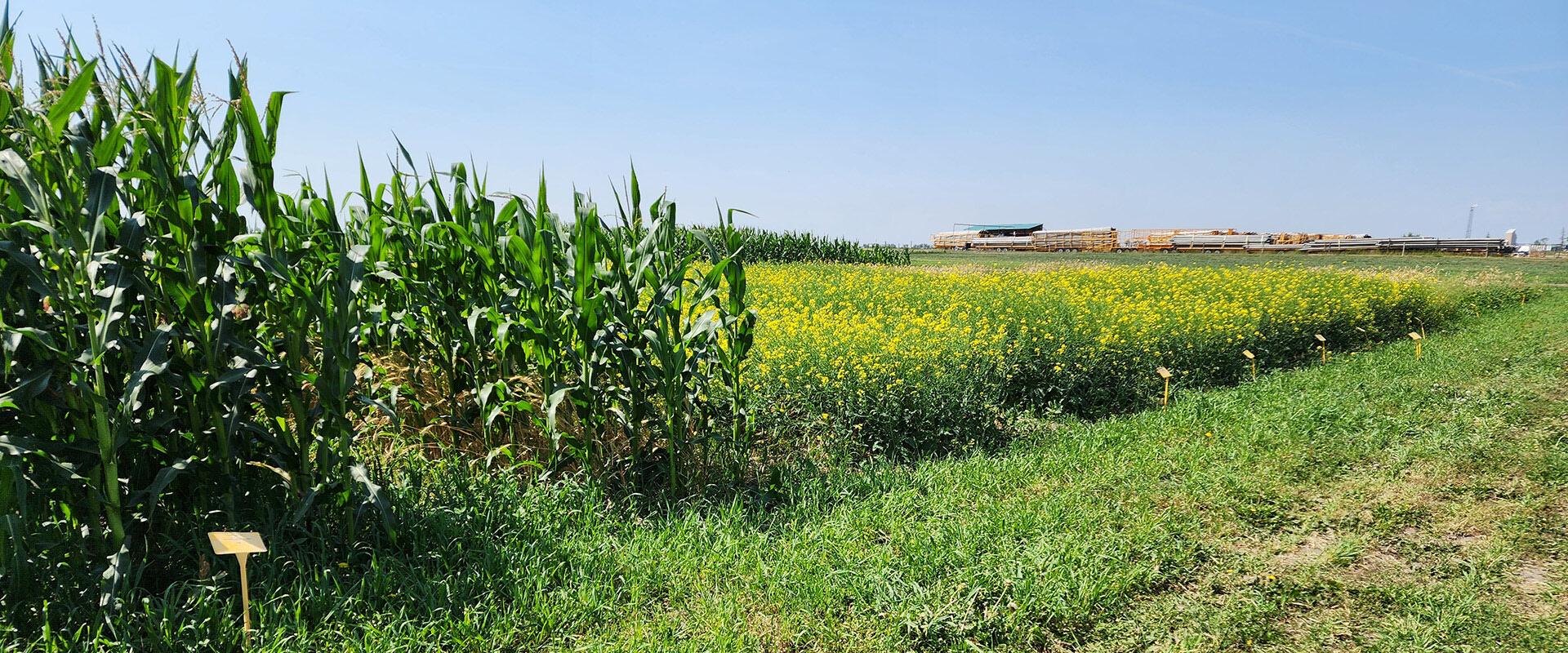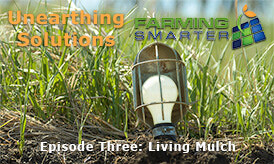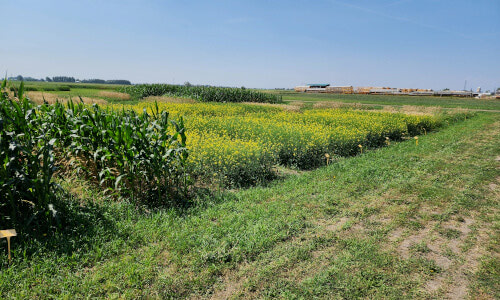Background
Large scale, energy-intensive agricultural production in the Canadian Prairies leads to exhaustive removal of soil carbon (C) and nitrogen (N), loss of soil structure, high soil erosion, and high greenhouse gas (GHG) emissions linked to climate change. Improving the organic matter (OM) content of soils is expected to reverse these processes by improving soil health and productivity, reducing soil erosive potential, while drawing down atmospheric CO2. However, annual cropping systems have been selectively engineered to allocate maximum plant C to harvestable parts such as seeds and fibers. Thus, a minimal amount of C in the underground root system and aboveground residues is returned to the soils. This program will target the adoption of innovative management practices that maximize biomass retention and OM content of agricultural lands in Canada.
Crops such as potato, sugar beet, and dry bean are harvested late in the season, have high levels of soil disturbance and leave little crop residue to protect soils from fierce Alberta winter winds. This program will develop innovative practices that enable better soil conservation and C sequestration while maintaining producers’ ability to compete in the global market.
|
Project Details
|
| Timeline |
2022-2027 |
| Principal Investigator: |
Mike Gretzinger
Farming Smarter |
| Project Contact: |
Mike Gretzinger |
| Funded By: |
Weston Family Foundation
RBC Tech for Nature
|
|



